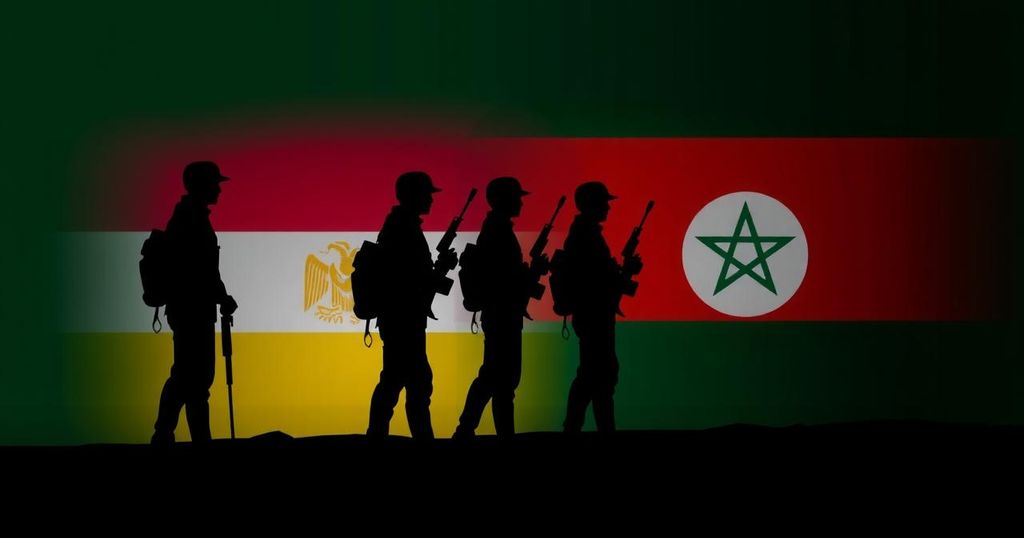Ethiopia’s Concerns Over the Egypt-Somalia Military Alliance
The emergence of a military alliance between Somalia and Egypt has raised significant concerns within the region, particularly for Ethiopia, which is apprehensive that the ramifications of this partnership could escalate beyond mere diplomatic tensions. The situation intensified recently with the arrival of two Egyptian C-130 military aircraft in Mogadishu, marking the commencement of an agreement established during a Somali presidential visit to Egypt in August.
This agreement entails the potential deployment of up to 5,000 Egyptian soldiers to bolster an enhanced African Union force by the year’s end, with an additional contingent of 5,000 troops anticipated to be assigned to separate operations. Ethiopia, a steadfast ally to Somalia in combatting al-Qaeda-affiliated insurgents, perceives this development as a direct threat, particularly in light of its ongoing disputes with Egypt regarding the Grand Ethiopian Renaissance Dam (GERD) on the Nile River. Ethiopia’s foreign minister articulated that the nation cannot remain passive while external forces undertake actions deemed destabilizing to the region.
In response to Ethiopia’s apprehensions, Somalia’s defense minister criticized the country’s grievances, asserting that all involved will ultimately face consequences for their actions. This reflects the deteriorated state of diplomatic relations between Ethiopia and Somalia, which has been exacerbated by Ethiopia’s strategic maneuvers aimed at securing port access after losing its maritime routes following Eritrea’s secession in the early 1990s.
On New Year’s Day, Ethiopian Prime Minister Abiy Ahmed finalized a contentious arrangement with Somaliland, a self-declared republic, to lease a segment of its coast for the establishment of a naval base. This deal has been met with vehement opposition from Mogadishu, which considers Somaliland a part of its territorial integrity, labeling the agreement as an act of aggression that may set a dangerous precedent regarding recognition of Somaliland’s autonomy by other nations. Furthermore, this situation has created unease in Djibouti, which fears that such recognition could adversely impact its economy reliant on port activities.
The situation is intensified by Ethiopia’s removal from the African Union peacekeeping force in Somalia, which began its third operation in January. Ethiopian troops, who have historically assisted in the fight against al-Shabab militants, could be withdrawn unless Ethiopia reconsiders the Somaliland agreement. According to analysts, this has been interpreted as an affront to Ethiopia’s sacrifices and commitment to Somalia’s security. The potential exit of Ethiopian troops raises alarms regarding Ethiopia’s vulnerability to militant threats, particularly with the backdrop of Egypt’s military engagement along Somalia’s eastern borders.
The longstanding Nile dispute compounds these tensions, as Egypt accuses Ethiopia of jeopardizing its vital water access through the construction of the GERD. The dam has been a point of contention since its inception in 2011, with Egypt claiming that any diminished flow could devastate agricultural productivity downstream. While Ethiopia views the dam as a crucial driver for national growth and electrical generation, negotiations over the dam’s operation have stalled, further entrenching the two nations’ discord.
The ramifications of the Egypt-Somalia alignment could precipitate a regional crisis, as military partnerships may instigate low-scale conflicts, with Somalia’s sovereign integrity at stake. Both nations are currently managing their internal issues, and further regional instability could exacerbate humanitarian challenges and fuel migration. Key stakeholders in the region, including external powers like Turkey and the UAE, are closely monitoring developments, as their vested interests in the Red Sea corridor can be significantly influenced by the unfolding geopolitical dynamics.
In conclusion, Ethiopia’s alarm regarding the Egypt-Somalia alliance is rooted in a confluence of historical grievances, territorial ambitions, and existential threats stemming from shared resources. The situation necessitates careful mediation to prevent a strategic escalation that could have repercussions far beyond the Horn of Africa, influencing global trade routes through the Red Sea and Suez Canal.
The geopolitical landscape remains fraught with tension, and as discussions are anticipated in mid-September, all eyes will be focused on the diplomatic efforts led by regional powers to restore stability and address the emerging threats to peace.








Post Comment